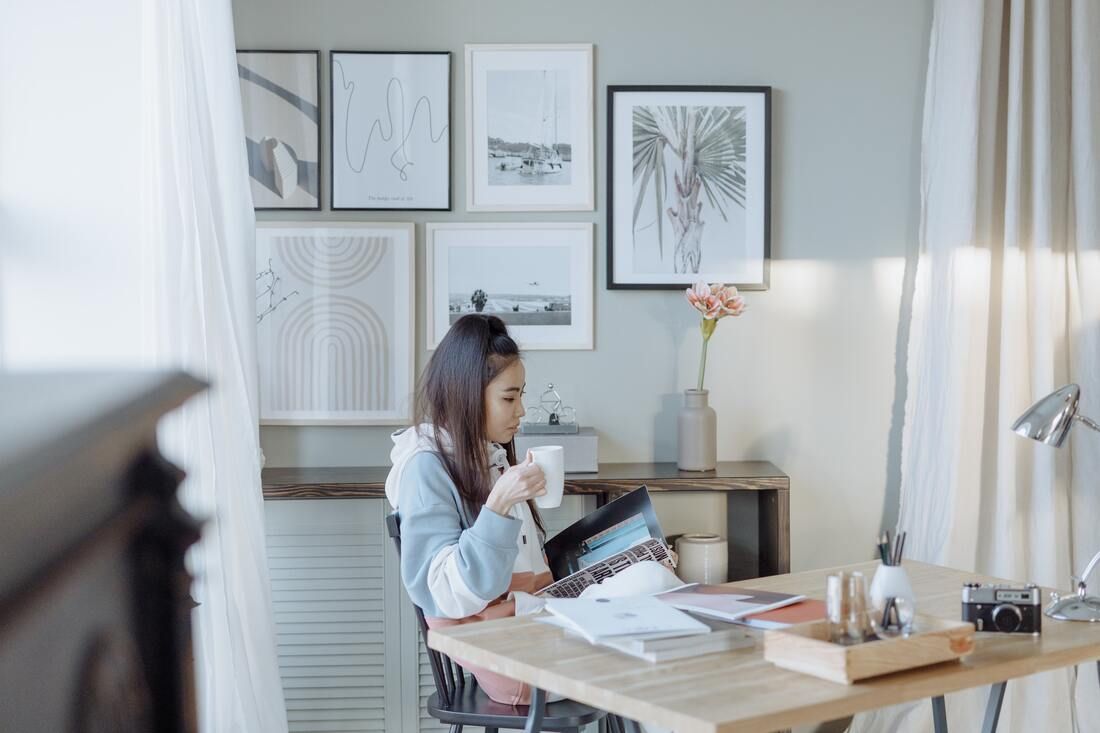|
Liz Greig. Provisional Psychologist Do you really know what self-care is? Self-Care can mean so many different things to so many different people. Here are 4 common misconceptions about self-care: 1. Self-care is selfish One of the most common misconceptions about self-care is that it is selfish. In reality, taking care of yourself is essential for your physical, mental, and emotional well-being, and it can actually help you be more productive and better able to care for others. Self-care involves making sure your basic needs are met, such as getting enough sleep, eating good food, and engaging in physical activity. It also includes taking care of your mental and emotional health, such as practicing relaxation techniques, setting boundaries, and seeking professional help when needed. Prioritizing your own well-being through self-care is not only beneficial for yourself, but it can also have a positive impact on those around you. Practicing self-care is an act of self-respect, not selfishness. 2. Self-care is all about pampering Many people believe that self-care is all about indulging in luxurious activities like spa treatments, shopping sprees, or fancy meals. While these things can be part of self-care, they are not the only way to take care of yourself. Self-care looks different for everybody, and can include things like sleeping, eating foods you enjoy, physical activity, reading a book or cuddling with a pet. 3. Self-care is only for people who have time and money Another common misconception about self-care is that it is only for people who have the time and money to indulge in it. In reality, self-care can be as simple as taking a few minutes to meditate or stretch, going for a walk, or taking a relaxing bath. Self-care is about prioritizing your well-being and finding ways to take care of yourself, no matter your circumstances. 4. Self-care is a one-time thing Some people believe that self-care is something you only need to do when you're feeling stressed or overwhelmed. In reality, self-care should be a regular practice that you incorporate into your daily routine. Taking care of yourself on a regular basis can help prevent burnout and improve your overall quality of life. Prioritizing your own well-being through self-care is an ongoing process that requires regular attention and effort. Book an appointment with one of our psychologists for more support around implementing your own self care plan
Often we think of trauma as only encompassing issues such as abuse, injury or disaster.
However people can experience trauma in many other ways. Consider the impact that pandemic has had on us over the past few years. I don’t know about you, but my physical and emotional wellbeing has definitely taken a hit. I know many people who have described the impact of the pandemic as a traumatic experience, the effects of which they might continue to experience for years to come. This is why it’s so important, now more than ever, to ensure that you and your family are making sure to look after yourselves Book an appointment with one of our friendly psychologists for further support In this post, we explore how to help bring your focus back to the positive aspects of your life and how to realistically incorporate self care into your busy routine.
One way is to take regular time each day to appreciate the positive things that are happening. Write them down and reflect on them when you need the reminder. When we think of self-care, too often we think of bubble baths and date nights. While both of those things are enjoyable and relaxing, it does not have to be your visual when it comes to self-care. Saying “no” to additional demands is self-care, as is going for a walk around the block for a quiet walk. Eating a healthy meal, or an act of kindness towards another person can also be a form of self-care. Trying something new or engaging in a hobby can also be self-care. Often, we find ourselves saying that we do not have enough time to do some of these things, and our self-care can be one of the first things to drop when we experience stress. However, it is important to remember that taking care of yourself is not a selfish act, it is helping you be the best version of yourself in order to best care for your children. Having a consistent time in the day scheduled for self-care can increase the chance that it happens and can be for just 3 minutes per day to start with. Being energised and refreshed helps us parents with patience and compassion and helps us model to our children that it is ok to take time for ourselves, ask for help and deal with our stresses in healthy ways. So, when you feel the stress and negativity creeping in, remember that it is ok to stop and ask for help. Giving 100% of yourself does not have to mean working until you fall apart. Having someone to talk things through can help give you some perspective, and often just getting things out of your head can be helpful. It may be helpful for you to consider services like - Parentline (1300 30 1300) - lifeline (13 11 14) - Your GP or even the ear of a friend. If you are in need of further support, please contact the clinic to book an appointment with one of our friendly psychologists. Last week we wrote about the 6 specific areas of life/work that have been identified as contributing to stress and burnout. This week, I'm exploring how to help bring your focus back to the positive aspects of your life. One way is to take regular time each day to appreciate the positive things that are happening. Write them down and reflect on them when you need the reminder. When we think of self-care, too often we think of bubble baths and date nights. While both of those things are enjoyable and relaxing, it does not have to be your visual when it comes to self-care. Saying “no” to additional demands is self-care, as is going for a walk around the block for a quiet walk. Eating a healthy meal, or an act of kindness towards another person can also be a form of self-care. Trying something new or engaging in a hobby can also be self-care. Often, we find ourselves saying that we do not have enough time to do some of these things, and our self-care can be one of the first things to drop when we experience stress. However, it is important to remember that taking care of yourself is not a selfish act, it is helping you be the best version of yourself in order to best care for your children. Having a consistent time in the day scheduled for self-care can increase the chance that it happens and can be for just 3 minutes per day to start with. Being energised and refreshed helps us parents with patience and compassion and helps us model to our children that it is ok to take time for ourselves, ask for help and deal with our stresses in healthy ways. So, when you feel the stress and negativity creeping in, remember that it is ok to stop and ask for help. Giving 100% of yourself does not have to mean working until you fall apart. Having someone to talk things through can help give you some perspective, and often just getting things out of your head can be helpful. It may be helpful for you to consider services like Parentline (1300 30 1300), lifeline (13 11 14), your GP or even the ear of a friend. |
Categories
All
|
Hopscotch & HarmonyAt Hopscotch & Harmony Psychology, you can expect compassionate care and evidence-based guidance on your journey to wellness.
With clinics in Werribee and Belmont, as well as providing online counselling to clients who live throughout Australia, our dedicated team of psychologists and dietitians are committed to providing support to children, teenagers and adults. With a focus on understanding your unique needs, we offer tailored solutions to foster growth and resilience. Trust in our experience and dedication as we work together towards your well-being. Welcome to a place where healing begins and possibilities abound. |
Our services |
Contact usHopscotch & Harmony
Child, Teen and Adult Psychology Our Locations:
WERRIBEE: 1/167-179 Shaws Rd
BELMONT: 92 Roslyn Rd AUSTRALIA-WIDE: Online counselling |
Hopscotch and Harmony respectfully recognise the Aboriginal and Torres Strait Islander people as the first Peoples of the continent now called Australia.
We acknowledge the Bunurong and Wadawurrung people of the Kulin Nation, the traditional owners of the land on which we work, and pay our respects to their Elders, past, present and emerging.
© 2024 Hopscotch and Harmony Pty Ltd






 RSS Feed
RSS Feed
